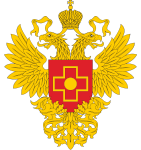
This article is an open access article distributed under the terms and conditions of the Creative Commons Attribution license (CC BY).
ORIGINAL RESEARCH
The effect of chronic exposure on the parameters of cytogenetic markers of senescence in the residents of the Techa riverside settlements
1 Urals Research Center for Radiation Medicine of the Federal Medical Biological Agency, Chelyabinsk, Russia
2 Chelyabinsk State University, Chelyabinsk, Russia
Correspondence should be addressed: Yulia Rafisovna Akhmadullina
Vorovskogo, 68A, Chelyabinsk, 454141, Russia; ur.xednay@luy.anilludamhka
Funding: the study was supported by the RSF grant (project № 22-25-20145 “Exploring the Mechanisms Underlying the Effects of Tolerance to Food Antigens on the Glucose Utilization”.
Acknowledgments: the authors would like to express their gratitude to Savkova N.F., senior laboratory assistant, for technical and laboratory support.
Author contributions: Akhmadullina YR — developing the criteria of the analysis, slide staining and assessment for the manuscript section on micronuclei, statistical analysis, literature review, manuscript writing; Vozilova AV — study conception and design, research priority setting, literature review, staining and analysis of cytogenetic slides for the manuscript section on unstable chromosome aberration, statistical analysis, manuscript writing; Krivoshchapova YaV — developing the criteria of the analysis, slide staining and assessment for the manuscript section on the telomere regions of the chromosomes, statistical analysis, literature review, manuscript writing.
Compliance with the ethical standards: the study was approved by the Ethics Committee of the Urals Research Center for Radiation Medicine (protocol No. 1 dated 22 January 2024); individuals who underwent cytogenetic examinations gave the informed consent to blood sampling and further assessment.
The understanding of the exposure effects on the human health could be improved by analyzing the influence of the chronic low dose rate exposure on the senescence of the immune system cells. It will also help to develop the measures aimed at the mitigation of the adverse effects. The objective of the study is to investigate the influence of the chronic low dose rate exposure on the senescence of the immune system cells using the cytogenetic markers. In the course of the research the authors evaluated the cellular senescence markers — genome instability and telomere depletion — in T-lymphocytes of the individuals exposed in the Southern Urals (exposure doses were 0.001 Gy — 4.7 Gy, the age of examined people was 40–89 years). The data analysis has demonstrated that the effect of chronic exposure on the T-cell senescence was indirect. Unstable chromosome aberrations occurred statistically significantly more frequently in exposed people aged 40–59 years (p = 0.012). Frequency of lymphocytes with micronuclei in exposed individuals differed in men and women (p = 0.001). Statistically significant decrease in the telomere length was revealed (for the chromosome arms 1q, 3p, 3q, 20p, 20q, 13q, 15p, 22q (p < 0.05); 19p, 21q (p < 0.01)).
Keywords: ionizing radiation, unstable chromosome aberrations, the Techa River, markers of cellular senescence, micronuclei, telomeres